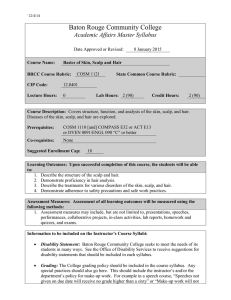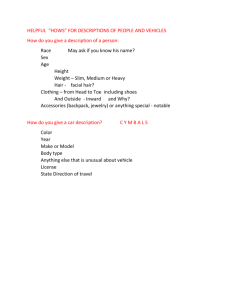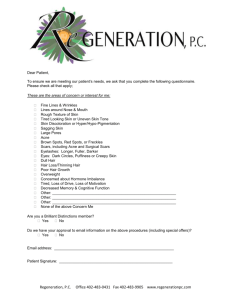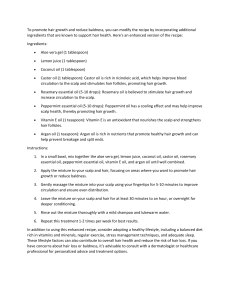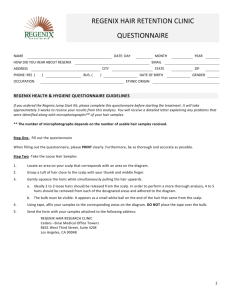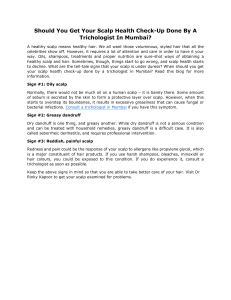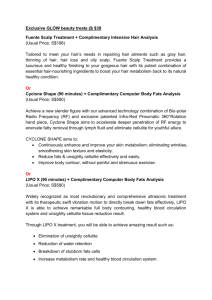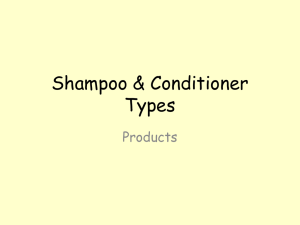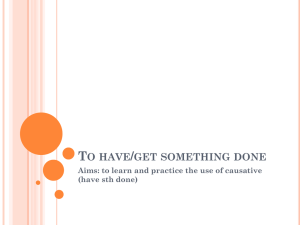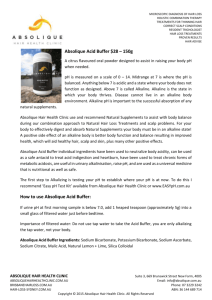Lesson Six Answers- Cutting, styling, coloring, and perming. To
advertisement
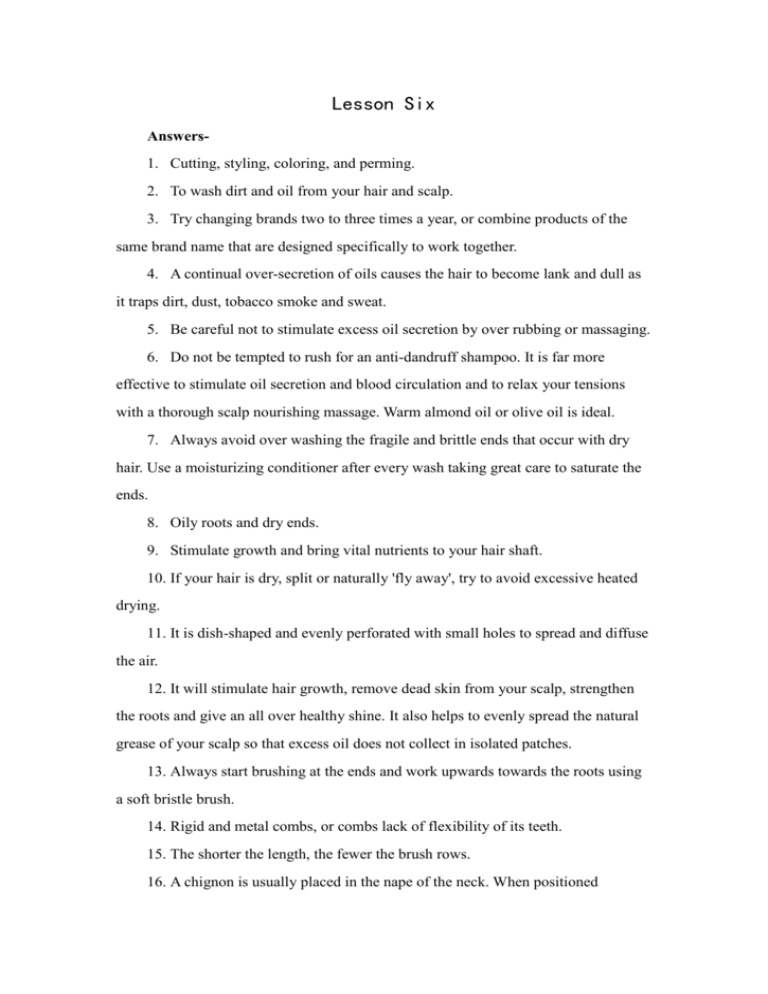
Lesson Six Answers1. Cutting, styling, coloring, and perming. 2. To wash dirt and oil from your hair and scalp. 3. Try changing brands two to three times a year, or combine products of the same brand name that are designed specifically to work together. 4. A continual over-secretion of oils causes the hair to become lank and dull as it traps dirt, dust, tobacco smoke and sweat. 5. Be careful not to stimulate excess oil secretion by over rubbing or massaging. 6. Do not be tempted to rush for an anti-dandruff shampoo. It is far more effective to stimulate oil secretion and blood circulation and to relax your tensions with a thorough scalp nourishing massage. Warm almond oil or olive oil is ideal. 7. Always avoid over washing the fragile and brittle ends that occur with dry hair. Use a moisturizing conditioner after every wash taking great care to saturate the ends. 8. Oily roots and dry ends. 9. Stimulate growth and bring vital nutrients to your hair shaft. 10. If your hair is dry, split or naturally 'fly away', try to avoid excessive heated drying. 11. It is dish-shaped and evenly perforated with small holes to spread and diffuse the air. 12. It will stimulate hair growth, remove dead skin from your scalp, strengthen the roots and give an all over healthy shine. It also helps to evenly spread the natural grease of your scalp so that excess oil does not collect in isolated patches. 13. Always start brushing at the ends and work upwards towards the roots using a soft bristle brush. 14. Rigid and metal combs, or combs lack of flexibility of its teeth. 15. The shorter the length, the fewer the brush rows. 16. A chignon is usually placed in the nape of the neck. When positioned anywhere else on the head, it is known as a bun.
